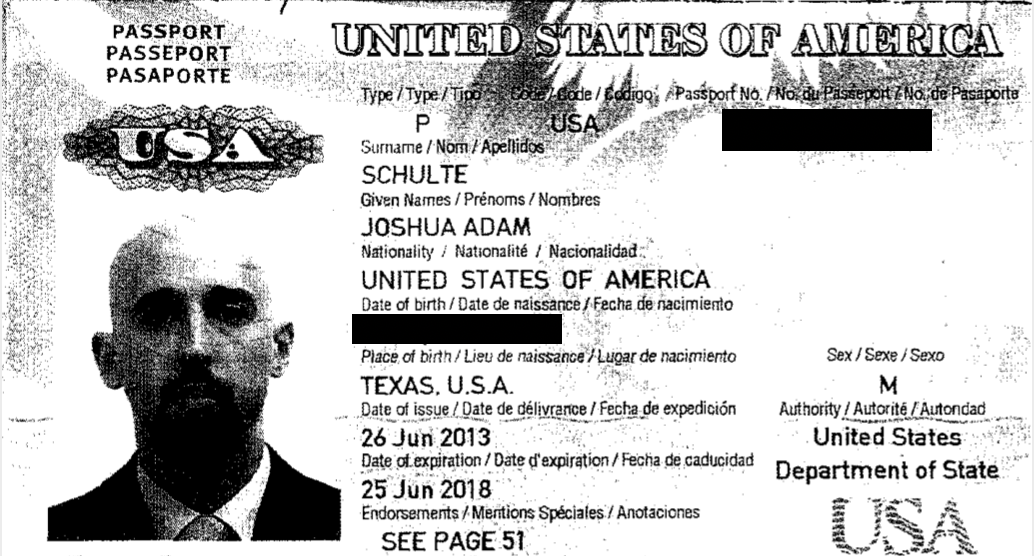Joshua Schulte Found Guilty on All Counts
The jury has returned guilty verdicts in all nine charges against Joshua Schulte. While I expected guilty verdicts on the revamped CFAA charges, I wasn’t sure about the far more circumstantial Espionage charges. DOJ must be breathing a sigh of relief.
I have no doubt Schulte will appeal. He has been setting up appeals on a Sixth Amendment SAMS challenge and on a Van Buren challenge to the CFAA charges; plus I imagine he’ll challenge some of the instructions and other decisions Judge Jesse Furman made (though I thought Furman was more favorable to Schulte than Paul Crotty before him).
I’m as interested in what happens with WikiLeaks after this.
WikiLeaks has been spamming references to the misleading Yahoo story about the response to WikiLeaks’ publication (and, more importantly, non-publication) of the stolen CIA files. And I know Assange’s US defense attorney has been getting transcripts from the case.
The WikiLeaks team surely recognizes what I have for years: The existing charges against Assange are all teed up to expand the CFAA count to incorporate the Vault 7 release and Vault 8 non-release (and, possibly, WikiLeaks’ role in the 2016 Russian effort). And Schulte was given discovery on an ongoing investigation into what is almost certainly WikiLeaks.
So while this closes the known part of the case against Schulte, it likely represents further headaches for Assange.
Update: SDNY’s statement calls this, straight up, Espionage.
Today, Schulte has been convicted for one of the most brazen and damaging acts of espionage in American history.






Not a “closet” at the end?
Have looking for this news to break, knew the jury was out, no idea what to expect as far as a verdict. Sounds like the DoJ did a better job this time around. Schulte seems to be very intelligent, without much attention to legality or morality. Could be a long sentence…
Obviously, today’s good new!
And he’s deserving of a long term prison sentence.
Interesting bit of perspective:
The Surreal Case of a C.I.A. Hacker’s Revenge
https://www.newyorker.com/magazine/2022/06/13/the-surreal-case-of-a-cia-hackers-revenge
“Bald Asshole” is underselling it.
I’m glad he lost, but my reason is sad and petty. I work in tech. And everybody who works in tech has to put up with that guy. That guy thinks because he’s good with computers that makes him the smartest person on earth; capable of excelling in any intellectual endeavor. If Schulte had won, he would have become the patron saint of that guy.
It’s not just everybody who works in tech who has to put up with that guy. That guy goes to church, goes to sports bars and sports matches, grills out with the neighbors, and attends school board meetings, and goes to all the family gatherings.
Lots of people have to deal with that guy. Maybe not from 9-5 M-F at work, but we *do* have to deal with that guy, and have to do it in the evening and on the weekends. Not sure which is worse, but we can agree that neither is good.
What’s the saying from poker? If you look around the room and don’t see *that guy*, well…
:~)
i’m so sick of “that guy.”
It goes well beyond just being an arrogant, cocksure asshole. In IT, “that guy” walls himself off from the mundane day to day tasks that are part of every IT person’s headaches. “That Guy’s” work is so important that no one else could possibly understand it and it’s so critical that he can’t sacrifice a few minutes a day to either answer a user’s question or bring a handful of fiber patch cables to the local data closet.
I’ve been in IT more or less since 1984, and THAT GUY usually winds up getting people fired because the only non personal project that guy works on is schlobbering on the boss’s knob on a daily basis leaving everyone else on staff overworked and underpaid..
There are websites now which do a great public service by keeping a lot of such people occupied at proving they are the smartest: math stack exchange and math overflow, depending on how long they did math in school/uni (and other stack exchanges for python etc). They get points, badges, moderation rights depending on how many positive evaluations they get, can happily mock unworthy padawans, get the opportunity to point out a mistake of this or that famous mathematician etc. While they are engaged in these mighty endeavours, they don’t do other things.
Perhaps “that guy” is the reason for all the extreme punishments we have to enforce? Exile in ancient times, jail. now perhaps exile from Twitter. But that single-minded brilliance … wow.
I think what makes things far worse are times when a boss empowers That Guy far outside their qualifications.
Bosses often think that giving authority to That Guy can be a way to get a lot checked off a to do list. They like hearing that false certainty over and over again.
Bosses think they can control them, and smart That Guys don’t try to convince the boss otherwise. But that’s how organizations end up with John Bolton or Judith Miller.
It is not just information services that is plagued by those who have never gotten over being the smartest kid in the third grade. My experience was principally with civil engineers but I was officially in information services. Most technical fields are prone to promoting to management the smartest candidate rather than the best candidate – my reaction to these people was that, because of their ‘smarts’ they never learned any humility which is essential to working in a team.
I’m a great team worker.
As soon as an other guy says he can do it (better), I let him.
My brother wasn’t exactly that guy, but one of the tragedies of his life was that he was always the most brilliant person around. In adulthood, when he was making terrible life decisions, he couldn’t imagine that dumber people might give him some great advice, might give him a needed boost in a better direction. He’s paranoid schizophrenic and I think this very factor plays a significant role in the form his mental illness takes..
Sorry if this is too OT.
We grow up within an educational Skinner box where our behaviors throughout childhood and into adulthood produce the educational system’s responses that reward or punish us with tokens. We are constantly observed and graded from the pre-operational stage of development until adulthood. For some people, one in a thousand or ten thousand, the educational system only responds with positive feedback. For extremely high achievers, a childhood of only positive feedback produces a delusional referential state, not only about how behaviors and rewards work in the world, but also about the real world capacities of other people in real world problem solving, which are not like educational simulacra. Extrinsic rewards that come in a variable interval are more powerful than rewards a person may get without trying, so education functions better on people who have to work to learn. I don’t know if this is relevant. I’m just saying that whatever is the formula for happiness doesn’t have much to do with ‘brilliance’. I’m sorry your brother had such a hard time. Being very smart is supposed to make things easier for a person.
I’m sure you didn’t mean to blame it all on the educational system. Parental units and dumb luck also play a major role.
And jeans. Good jeans.
Sorry… genes.
I had the pleasure of growing up in a school district where nearly every kid in the room was smart. We could all recognize the few who were really, really smart, but it wasn’t a Big Thing. (A bunch of them got doctorates later on.)
Sounds like my public high school’s computer science class, a class at the dawn of the PC age…
Was ‘that guy’ in that my class? Hmm… I was the official student assistant to the teacher of the class…and I was like maybe the fifth or sixth best programmer in the class. Some were brilliant programmers. As an example, two of the students had already designed and sold a debugger command-o rom to a large company, and then self-published a book on how to use it (where the real money on the deal was it turned out!), etc. Needless to say, our teacher was pretty much out classed by at least a handful of the students when it came to programming and modern CS tech.
“Mr. L” seemed uncomfortable with using the two crt pdp timeshare terminals and basically only knew much about punchcards and paper tapes and other things that most of the rest of us thought of as passé. If one didn’t get access to a crt terminal, one had to use the much slooower, long-in-the-tooth ttys for timeshare access to a remote site many miles away. We always had to use a tty to save our programs to punchtape so we could feed them back in later as there wasn’t magnetic tape facilities at our site. “Mark my word, boys, you’ll regret not having learned how to use punchcards!” the teacher would remark as we fought over who would get to use a CRT terminal.
We all nodded our heads in class…mostly because we were falling asleep… but, still, it turned out that he was right about the bloody punch-cards…if only because many universities and technical colleges, businesses, were still using punchcards well into the late-80s to mid-90s as they “maximized return on infrastructure investment” (past the point of it making much educational sense…I leave it to others to imagine the business sense of it).
Yeah, there was very likely a ‘handful’ of budding “that guys” in Mr. L’s classes…a fact that he appeared to be resigned to year in and year out.
Aaaahhhh, Pdp-11,… man those puppies could fight, so solid. So the thing is I have dozens of 10″ floppy disks from that era and I have re-labeled as Windows FU-22. I hand them out as Beta OS to “THAT GUY” when I see them, and the question that always comes? “what can I do with a 10″disk?” “Oh well, you will have to upgrade of course!”
FU = Functional Utilities btw.
LB
Glad doj did a better job this time around. Wasn’t this jerk the impetus for the FBI to expand the category of crimes they could query NSA collections for, above and beyond the original stated purpose of terrorism?
And thanks for covering this story, it has been an entertaining ride